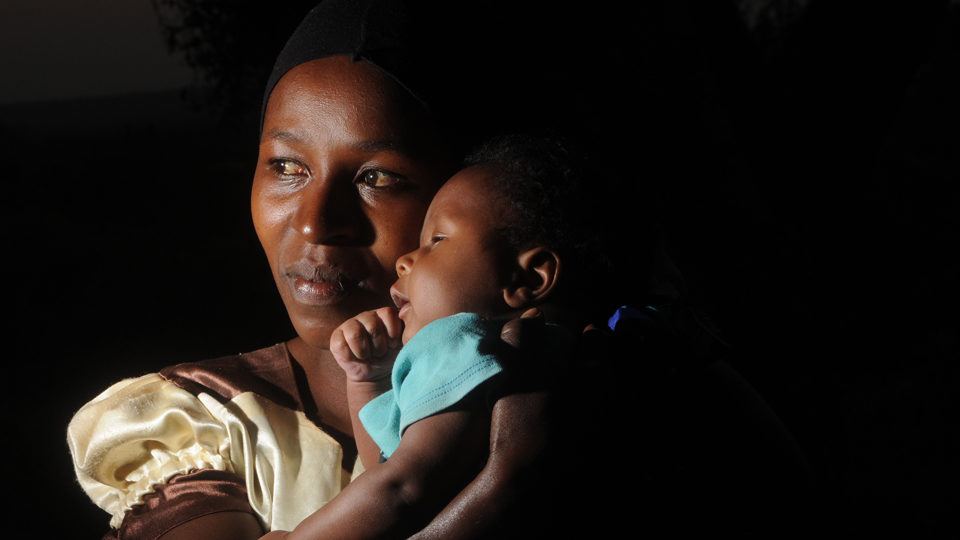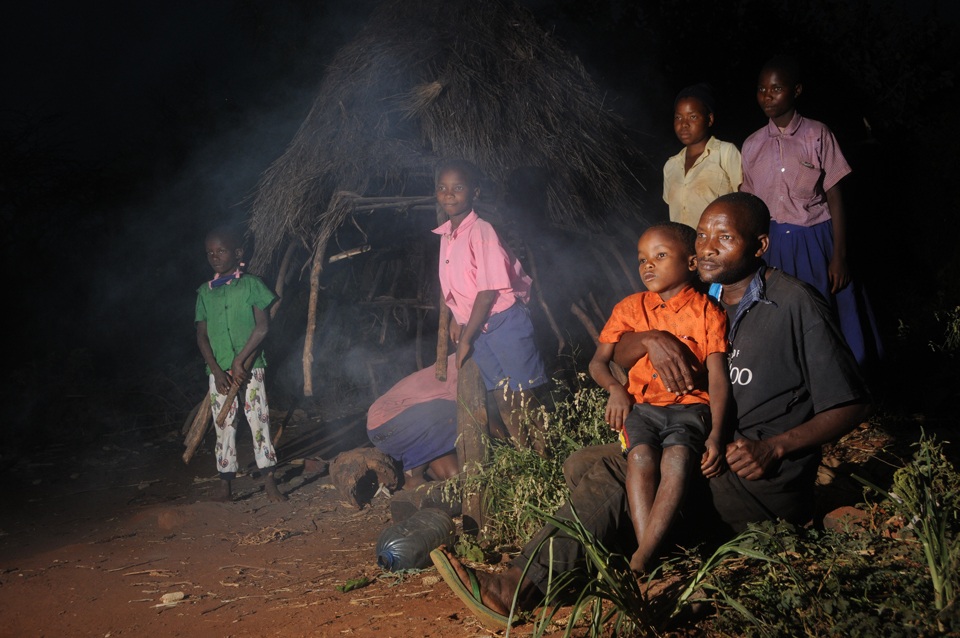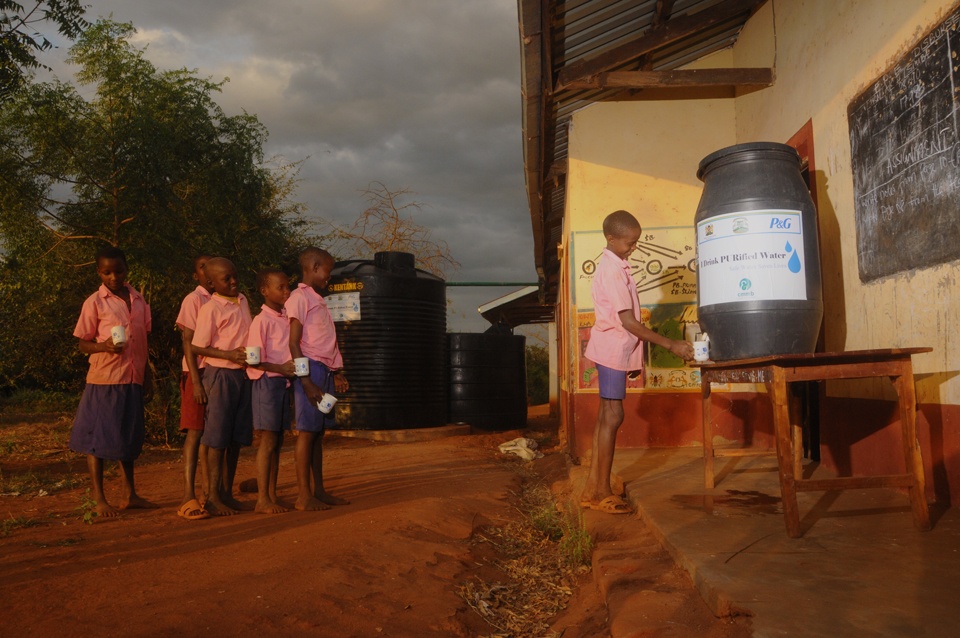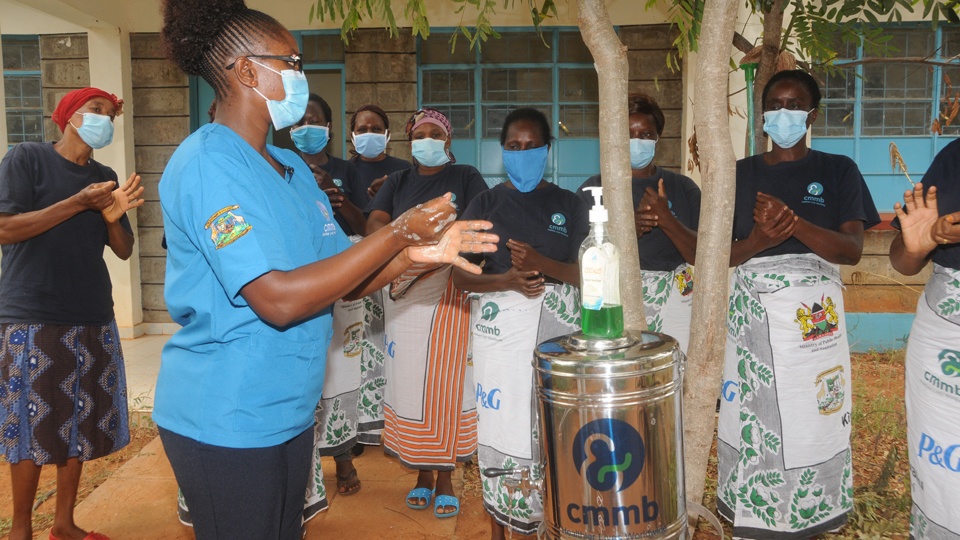COVID-19 Situation Report – September 2020

Delivering on Mission in Kenya:
Personal Protective Equipment and Safe Water
COVID-19 Threatens Progress
As stigma and fear continue around COVID-19, many families have stopped seeking healthcare. Our challenge is to raise public awareness, improve health workers’ protection, and urgently promote proven life-saving antenatal care, child immunization, and antiretroviral therapy while protecting families and health workers from COVID-19 infection. CMMB Kenya’s staff have proved energetic and innovative in response. Our personal protective equipment (PPE) donation to Kitui South was featured on a national television broadcast in Kenya.
Toward CMMB’s goal of ending preventable disease and death among mothers and children, we are responding. We are working to keep healthcare workers safe so they can keep on providing care now and in the future. We are working to help families understand that they will be safe at health facilities. And we are teaching them how to prevent infection.
HELP US FIGHT COVID-19. GIVE NOW.
The View from Kenya
The World Health Organization has reported a slowdown in the rate of new infections in Kenya, for as-yet-unknown reasons. However, the number of daily reported deaths is relatively high, and the nation is on the defensive. Bars are closed, restaurants open only until 7 pm, and sales of all alcoholic beverages prohibited. Restrictions have been put on church services’ size and duration. Although universities open in September, with many precautions, other schools will remain closed through January. The nightly 9 pm–4 am curfew remains in effect until October. Famine and deteriorating socioeconomic conditions threaten social peace.
“Right now, drivers are out there supplying PPE. HQ support on PPE has been incredible—very different from what we are seeing with other organizations and Nairobi public hospitals.”
Nairobi now accounts for most infections, with the greatest suffering in the city’s sprawling informal settlements. Here, where every citizen is vulnerable, COVID-19 has exacerbated the crippling challenges of daily life. Population density makes restrictions on contact and social distancing next to impossible.
By contrast, few cases are found in Kitui County, even fewer in its Kitui South Sub County, the remote, rural site of CMMB’s signature program, Children and Mothers Partnerships (CHAMPS). But across Kenya, people remain concerned, especially healthcare workers (HCWs) with jobs in dispensaries, clinics, and hospitals, and the community health volunteers (CHVs) who provide information and referrals in homes.
HCWs and CHVs alike fear becoming sick themselves and then infecting their families—especially if no PPE is available, as was common in the pandemic’s early days. Deaths of prominent Kenyans and frontline HCWs from COVID-19 have exacerbated such fears. And because of government social distancing restrictions, gatherings of friends and other coping mechanisms are no longer a possibility. This is the context in which CMMB Kenya is operating.
“One thing is sure—among staff and community health volunteers, there is huge dedication.”
“Right now, drivers are out there supplying PPE. HQ support on PPE has been incredible—very different from what we are seeing with other organizations and Nairobi public hospitals,” said James Kisia, MD, Country Director, CMMB Kenya. “One thing is sure—among staff and community health volunteers, there is huge dedication. Community health workers are doing incredible work integrating COVID-19 and behavior change messaging. It speaks to their preparedness, their flexibility, their ability to adapt. To respond to needs on the ground, the program stretched existing resources and found new ones.”
The CHAMPS Kenya Response to COVID-19
Community Engagement
CMMB has worked assiduously to support communities to do all possible to combat the virus—to ready health workers with PPE and knowledge and to advocate for prevention—while continuing ongoing programs, working within government-imposed restrictions.
Needs Assessment
At the onset of the pandemic in Kenya, CMMB did a needs assessment of all 44 Kitui South health facilities. The assessment pointed to huge gaps in equipment, PPE, skills, and critical health information.
Collaboration
Findings in hand, CMMB worked with county and national Ministry of Health response mechanisms to establish response teams across Kitui’s eight sub counties. These teams coordinated distribution of handwashing needs, essential medicines, and PPE; COVID-specific HCW and CHV trainings; and community sensitization and awareness radio campaigns.
Action
Findings in hand, CMMB worked with county and national Ministry of Health response mechanisms to establish response teams across Kitui’s eight sub counties. These teams coordinated distribution of handwashing needs, essential medicines, and PPE; COVID-specific HCW and CHV trainings; and community sensitization and awareness radio campaigns.
Water for Drinking and Infection Prevention
Sub County suffers perennially from unreliable rainfall and long droughts; water scarcity and contamination translate to daily struggle. Young children who should be in school must fetch water; a 10-kilometer walk leaves them exhausted before they ever open a book.
Safe WASH practices remain pivotal to curbing spread of COVID-19 infection in health facilities, schools, households, and public places. Just in time to meet this additional water need, a generous friend of CMMB mobilized family and friends to fund bringing water to eight underserved schools (six primary, two secondary) and the CHAMPS base and main local referral hospital, Our Lady of Lourdes Mutomo Hospital, which serves 43,000 people every year. Each of the eight schools received four 10,000-liter tanks, guttering, and roof repairs to facilitate rainwater collection. At the hospital, three ablution blocks were added, along with 50,000-liter water tanks and pipe connections to seven wards.
Focus On Women
Fearing a fine for breaking curfew, pregnant women who went into labor at night often delayed leaving for the clinic, putting themselves and their babies at risk. CMMB worked with the sub county security council to create a special pass permitting them, and anyone driving them, to travel outside curfew hours. When CMMB found women skipping antenatal care for fear of becoming infected at the facility, CMMB provided face masks.
Separately, CMMB also gave dignity kits to 424 adolescent girls from poor families (each with a six-month supply of sanitary towels, a bar of soap, and an undergarment) to shield them from extreme vulnerability. CMMB worked with school health matrons to develop the kits.



